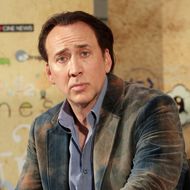Frivolous Musings
Some thoughts on politics/lit/tech/life itself
Evolution of Ideas
I recently came across a blog post reviewing the long-awaited book of a certain anonymous blogger who disappeared from the internet about a decade ago (after being doxxed). It reminded me that around that time I had kept up a correspondence with a friend over some of the big issues - what is the ideal political system? what makes some art better than other art? or the meaning of some common terms like “hipster” or “liberal” or “conservative”. My friend was an avid reader of said blog. I reread some of the emails and considered how much I think about those questions now, and what my views are on them today. Here are two:
- What makes, say, Proust better than, say, any given young adult romance ebook?
Today I would start off with the caveat that such judgements are ultimately more subjective than, say, the laws of physics. There are probably people who would claim that their favourite obscure self-published romance novel is better than any given classic, and there is no definitive way in which they are wrong. A book’s being a “classic” is just a matter of broad consensus that it is worth something, and for any given classic - Proust, Shakespeare, Joyce - you are certain to find experts who think it is worthless.
The judgement of literary or artistic value is the subject of the subfield of philosophy known as aesthetics and, as with most philosophical questions, there are plenty of decent theories but no definitive answer. Traditionally the criterion for visual art was that it look nice, in a way that was beyond the ability of most people, and later, that it perhaps introduce a new way of doing things. (Plenty of people in the age of Rembrandt or Goya could paint pretty landscapes or still lifes, but we are usually more interested in their work which was in a totally unprecedented style.) Duchamp and his urinal introduced a contradiction here which people are still thinking about. But in literature, we can apply the same criterion: Proust introduced a new style of writing, and is considered by many to be beautiful. Most novels, which tend to follow conventions, or else break them in ways considered less attractive, are considered (by many, and many experts) less worthy.
- Is capitalism more conducive than communism to human nature?
(Firstly, this is an old debate, between Hobbes and Rousseau.)
 Nicolas Cage
Keep this guy out of your commune
I don’t believe this is true, but I do believe that communism doesn’t scale because as the group grows, the likelihood of bad actors increases, and bad actors destroy the trust needed for a communist society to thrive.
For this reason I think that it tends to work at small scale, like the kibbutz movement or student dorm co-ops. Say I live on a kibbutz and am a software engineer at Google. I put my salary into the pot, so does my neighbour the poet. At the end of year one we have a big surplus. In year two one of the members is diagnosed with a medical condition requiring expensive treatment, but luckily the surplus covers it. In year three we have grown, and by the end of the year there is little surplus left, despite the sick member having stabilised and not requiring new treatments. Upon inspection we discover that one new member, Bob, fraudulently claimed for some expenses related to renovations, spending the money on cars he sold on the side. We kick him out, but I still feel resentful. While my colleagues at Google are living it up, I am leading a modest and idealistic lifestyle, just so someone can steal or mismanage the money?!
Nicolas Cage
Keep this guy out of your commune
I don’t believe this is true, but I do believe that communism doesn’t scale because as the group grows, the likelihood of bad actors increases, and bad actors destroy the trust needed for a communist society to thrive.
For this reason I think that it tends to work at small scale, like the kibbutz movement or student dorm co-ops. Say I live on a kibbutz and am a software engineer at Google. I put my salary into the pot, so does my neighbour the poet. At the end of year one we have a big surplus. In year two one of the members is diagnosed with a medical condition requiring expensive treatment, but luckily the surplus covers it. In year three we have grown, and by the end of the year there is little surplus left, despite the sick member having stabilised and not requiring new treatments. Upon inspection we discover that one new member, Bob, fraudulently claimed for some expenses related to renovations, spending the money on cars he sold on the side. We kick him out, but I still feel resentful. While my colleagues at Google are living it up, I am leading a modest and idealistic lifestyle, just so someone can steal or mismanage the money?!
This is a miniature; but we can well imagine that a Ukrainian farmer might not feel well-disposed towards the Workers’ Republic after being starved (historians disagree over whether it was intentional or if Stalin just didn’t care, but there’s not much difference for our purposes.) The Russian Empire was a vast mix of ethnicities, languages and religions, who never had much of a shared basis for trust; that is the worst possible situation in which to build a communist society.
So in sum what I believe is that it is “against human nature” only in the sense that some people are bad; and in a situation with bad people capitalism works better, since it requires less trust. In small groups of decent people it does work. I strive to make the world better; in the interim, capitalism is a Band-Aid, not a panacea.